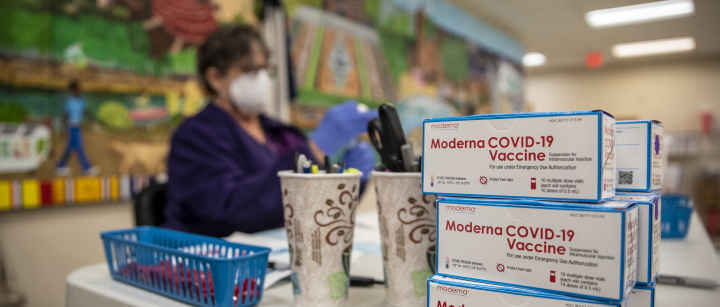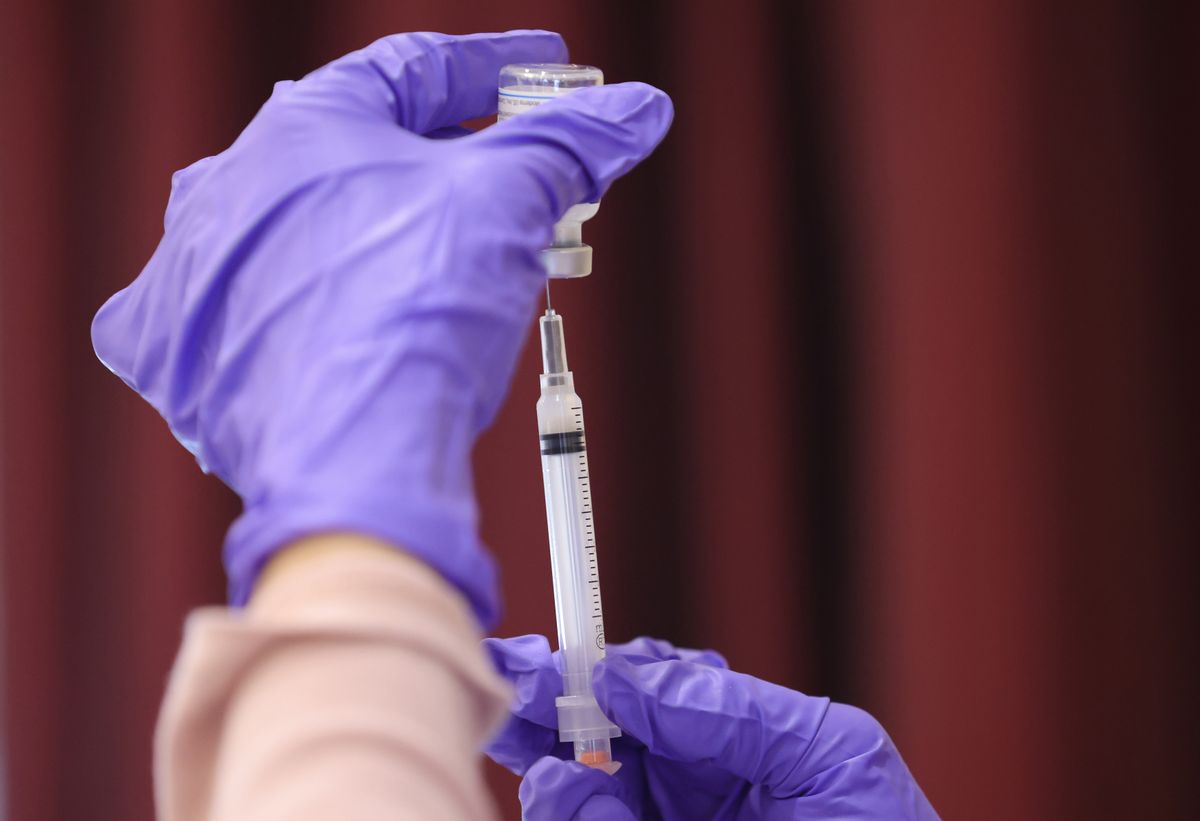Court rulings can be wrong. Constitutionality is a different matter. There is NO Constitutional basis for allowing companies to demand specific health measures.
I know you probably think your position is correct, but, speaking as a constitutional lawyer, you are very likely wrong. At least since 1905, or depending how you view the question, even earlier, the U.S. Supreme Court (which, as they say, is not final because it's right, but is right because it is final) held that there is NO constitutional right to opt out of a vaccination mandate.
Jacobson v. Mass., 197 U.S. 11 (1905);
see, also, Railroad Company v. Husen, 95 U.S. 465, 472 (1877) ("we unhesitatingly admit that a state may pass sanitary laws and laws for the protection of life, liberty, health, or property within its borders.").
In
Jacobson, the Court said:
"But the liberty secured by the Constitution of the United States to every person within its jurisdiction does not import an absolute right in each person to be, at all times and in all circumstances, wholly freed from restraint. There are manifold restraints to which every person is necessarily subject for the common good. On any other basis, organized society could not exist with safety to its members. Society based on the rule that each one is a law unto himself would soon be confronted with disorder and anarchy. Real liberty for all could not exist under the operation of a principle which recognizes the right of each individual person to use his own, whether in respect of his person or his property, regardless of the injury that may be done to others. This court has more than once recognized it as a fundamental principle that 'persons and property are subjected to all kinds of restraints and burdens, in order to secure the general comfort, health, and prosperity of the State, of the perfect right of the legislature to do which no question ever was, or upon acknowledged general principles ever can be, made so far as natural persons are concerned.'"
Jacobson, 197 U.S. at 26 [cleaned up]. "Even liberty itself, the greatest of all rights, is not unrestricted license to act according to one's own will. It is only freedom from restraint under conditions essential to the equal enjoyment of the same right by others. It is then liberty regulated by law."
Id., 197 U.S. at 26-27.
In terms that are equally applicable today, the
Jacobson Court continued: "The authority to determine for all what ought to be done in such an emergency must have been lodged somewhere or in some body, and surely it was appropriate for the legislature to refer that question, in the first instance, to a Board of Health, composed of persons residing in the locality affected and appointed, presumably, because of their fitness to determine such questions. To invest such a body with authority over such matters was not an unusual nor an unreasonable or arbitrary requirement. Upon the principle of self-defense, of paramount necessity, a community has the right to protect itself against an epidemic of disease which threatens the safety of its members. It is to be observed that, when the regulation in question was adopted, smallpox, according to the recitals in the regulation adopted by the Board of Health, was prevalent to some extent in the city of Cambridge, and the disease was increasing. If such was the situation -- and nothing is asserted or appears in the record to the contrary -- if we are to attach any value whatever to the knowledge which, it is safe to affirm, is common to all civilized peoples touching smallpox and the methods most usually employed to eradicate that disease, it cannot be adjudged that the present regulation of the Board of Health was not necessary in order to protect the public health and secure the public safety."
Id., 197 U.S. at 27-28.
And, of course, if a State has the authority to mandate vaccination, absent a prohibition by the State of such a mandate (similar to what Florida has in place right now), a private employer can follow the State's direction to protect its own employees. It is not required to do so, but the Constitution does not prohibit it from doing so. I have pointed out in another post the evolution of the reviews the courts have been using to consider these questions over time; suffice it to say that the courts were more deferential earlier in the pandemic, but are increasingly requiring governments to provide more specific and concrete evidence of harm and narrowly-tailored remedies.
See, e.g., Roman Catholic Diocese of Brooklyn v. Cuomo, November 2020.
Perhaps you meant to say that some statute forbids an employer from doing so, as Florida does for customers (but not for employees). There have been several lawsuits filed in various states that make that claim. For example, employees at Houston Methodist Hospital in Texas (
Bridges v. Houston Methodist Hospital), Dona Ana Detention Center in New Mexico (
Legaretta v. Macias), and Los Angeles County schools in California (
California Educators for Medical Freedom v. Los Angeles Unified School District) have all argued that their employers’ requirements that they get the COVID-19 vaccine or face termination amounts to compelling them to participate in a medical experiment in violation of their rights under federal law because the FDA has not yet formalized an authorization of use for the vaccines. So far, none of those claims has been successful, and on June 12, 2021, the United States District Court for the Southern District of Texas dismissed all of the claims brought against Houston Methodist Hospital. The other cases will likely be mooted out of court as the FDA is racing to authorize at least the Pfizer vaccine, and Moderna looks like it will quickly follow. Even if the question is not moot for other vaccines, it is a steep uphill challenge to say that this interpretation of federal law is correct, when the CDC and other federal agencies have long said, in words of the CDC: "The Food and Drug Administration (FDA) does not mandate vaccination. However, whether a state, local government, or employer, for example, may require or mandate COVID-19 vaccination is a matter of state or other applicable law.” Similarly, the EEOC says that “The federal EEO laws do not prevent an employer from requiring all employees physically entering the workplace to be vaccinated for COVID-19,” so long as employers allow for legally required reasonable accommodations for employees with disabilities or religious beliefs that do not allow for vaccinations.
I would be happy to hear any other basis for your claim that the Constitution does not provide a basis for an employer vaccination mandate, but given the Supreme Court's unwavering finding that the Constitution permits mandatory vaccination, I would hope that you could cite to a specific U.S. Supreme Court decision. That's because only the Supreme Court itself can overrule a Supreme Court constitutional interpretation, and lower courts are bound by that until the Supreme Court itself does so.
See Hohn v. United States, 524 U.S. 236, 252–53 (1998) (“Our decisions remain binding precedent until we see fit to reconsider them, regardless of whether subsequent cases have raised doubts about their continuing vitality.”).
UPDATE: On August 2, in
Klaassen v. Trustees of Indiana University, No. 21-2326 (7th Cir., Aug. 2, 2021), the U.S. Court of Appeals for the Seventh Circuit rejected a challenge by students objecting to a vaccine requirement to return to class, citing
Jacobson and saying: "there can't be a constitutional problem with vaccination under SARS-CoV-2." Slip op. at 2.




